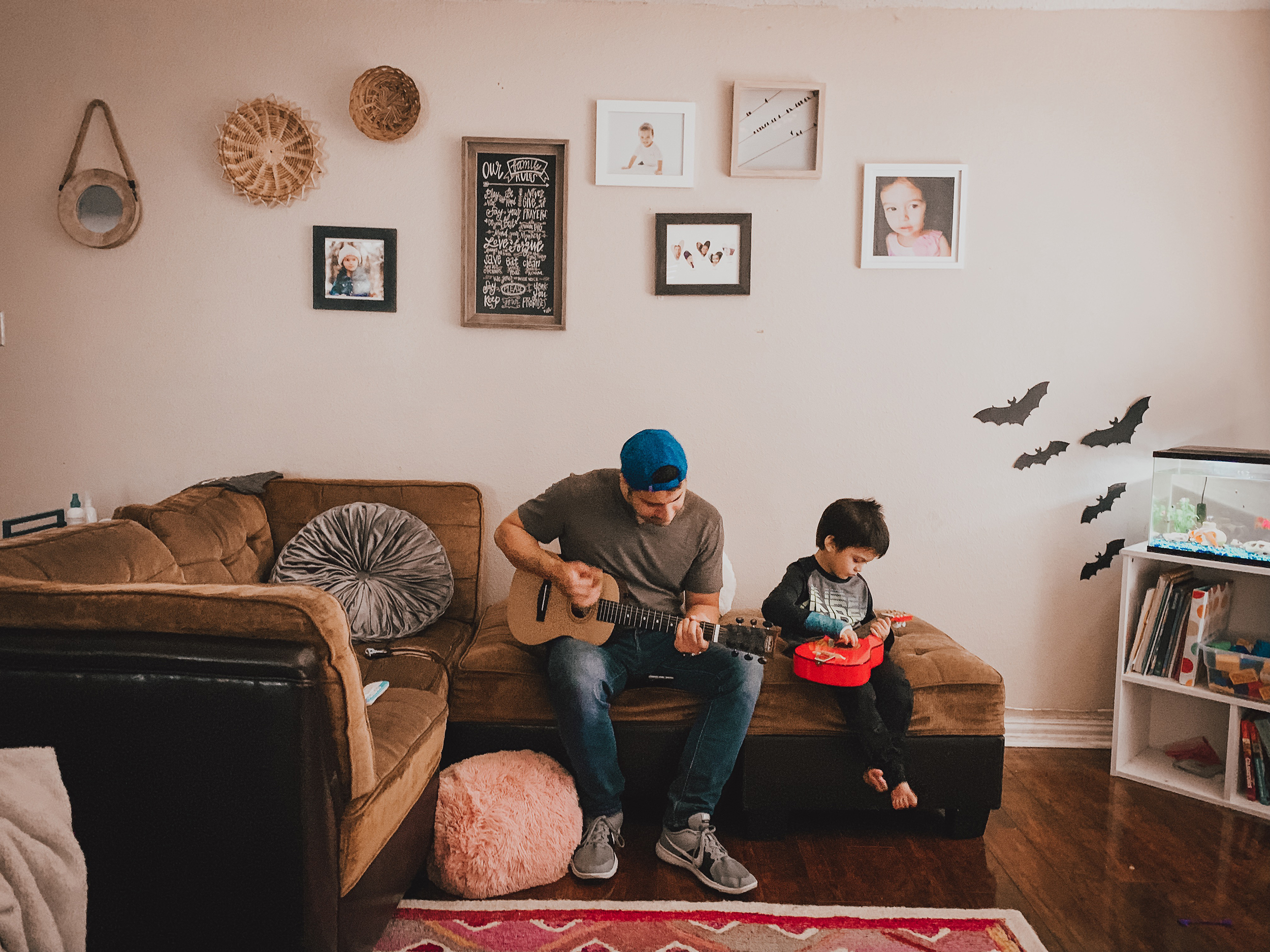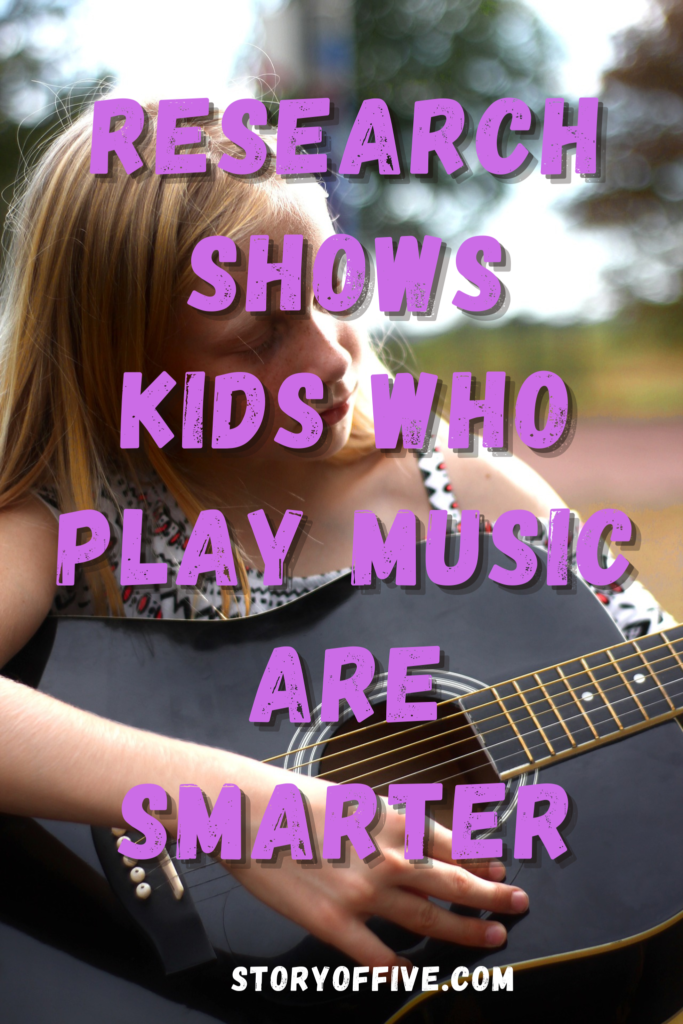![]()

Studies show that kids who learn musical instruments are smarter. That was a great read considering my two girls love their music lessons. While one of them is in love with the guitar, the other is crazy about the piano. Although I always thought it’s amazing they have such a fun time learning these instruments; I recently discovered many other benefits of music learning.

According to some studies, learning music helps with brain development, motor skills, slows the aging process and even helps with math skills. Studies even show that kids’ self-esteem improves if they’re attending music lessons.
- Music learning increases self-esteem
Since a big part about attending music lessons involves children showing adults what they can play or sing, they will feel a growing sense of accomplishment when adults show appreciation, joy or awe at their little one’s musical abilities. According to this study, “school-based music classes prevented a decline in global self-esteem measures experienced by the control group in both the younger and older cohorts, and in general and academic self-esteem for the older cohort.”
So, if your kid comes to you and says, “Look what I can play mom!” remember to show interest, awe and joy. They will feel loved, and their self-esteem will improve on a long-term basis.
- Higher math scores and academic performance
Different studies have shown an increase in math scores and academic performance in kids who study music regarding those who don’t.
According to UBC education professor and this study’s principal investigator, Peter Gouzouasis “The students who learned to play a musical instrument in elementary and continued playing in high school not only score significantly higher, but were about one academic year ahead of their non-music peers with regard to their English, mathematics and science skills, as measured by their exam grades, regardless of their socioeconomic background, ethnicity, prior learning in mathematics and English, and gender.”
- Slower aging process
The good news here is that studies show learning music can slow the aging process. Research says that adults with at least 10 years of musical experience had better performance in nonverbal memory than non-musicians.
- Improve attention and better memory ability
Do you know all the brain skills a child needs to develop to learn all the songs by memory? Research shows that children who study music have better memory skills than kids who don’t, and musically trained kids performed better at attention and memory exercises.
According to this research, “Learning to play a musical instrument and playing in an ensemble is very demanding,” said the study’s co-investigator Martin Guhn, an assistant professor in UBC’s school of population and public health. “A student has to learn to read music notation, develop eye-hand-mind coordination, develop keen listening skills, develop team skills for playing in an ensemble and develop discipline to practice. All those learning experiences, and more, play a role in enhancing the learner’s cognitive capacities, executive functions, motivation to learn in school, and self-efficacy.”
- Slower rates of anxiety and depression
Although many parents worry about their children’s academic achievements, lengthy life and brain skills, mental health is equally important.
However, the good news is that studies show a decline in anxiety and depression rates in children who study music.
This might be because children who learn music usually share lots of experiences with peers (whether they’re in an orchestra, band or chorus). Thus, they have a support group, and they’re less prone to have mental health issues.
Should my child learn music?
Of course I’d say yes, but I think your children have to show at least some interest in it. It takes lots of patience and practice and you never want to set your child up to fail. We took full advantage of all the zoom classes available to us during this crazy time in the world. Since my girls were doing virtual learning at home, it was easy to transition to musical virtual learning after their regular school day. They go once a week and they both picked what instrument they wanted to learn. If your child shows a little interest then yes, I’d say go for it! Get an instrument, we got ours off Amazon, and have them dabble in something new to see if it’s something they really want to invest their time in.
Here is a great starter piano. Music learning in children has many benefits, and we don’t frequently know all of them. As parents, we want our children to grow happily and to live long lives. So now, every time my kids ask me to listen to what they want to play on the piano and guitar, I’ll arrange a concert and clap to every single song.


